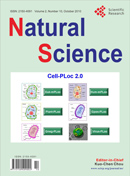 We have long (well, for the past two years) wondered about the pitfalls of publishing in one’s own journal, and here’s a case that illustrates precisely how fraught that practice can be.
We have long (well, for the past two years) wondered about the pitfalls of publishing in one’s own journal, and here’s a case that illustrates precisely how fraught that practice can be.
The journal Microfluidics and Nanofluidics has retracted a 2010 article, titled “Induced-charge electrokinetic phenomena,” by Dongqing Li and Yasaman Daghighi, of the University of Waterloo in Canada, for what appears to be extensive misappropriation of text and data.
As the notice explains: Continue reading Plagiarism costs Canadian lab-on-a-chip researcher a paper — in his own journal








